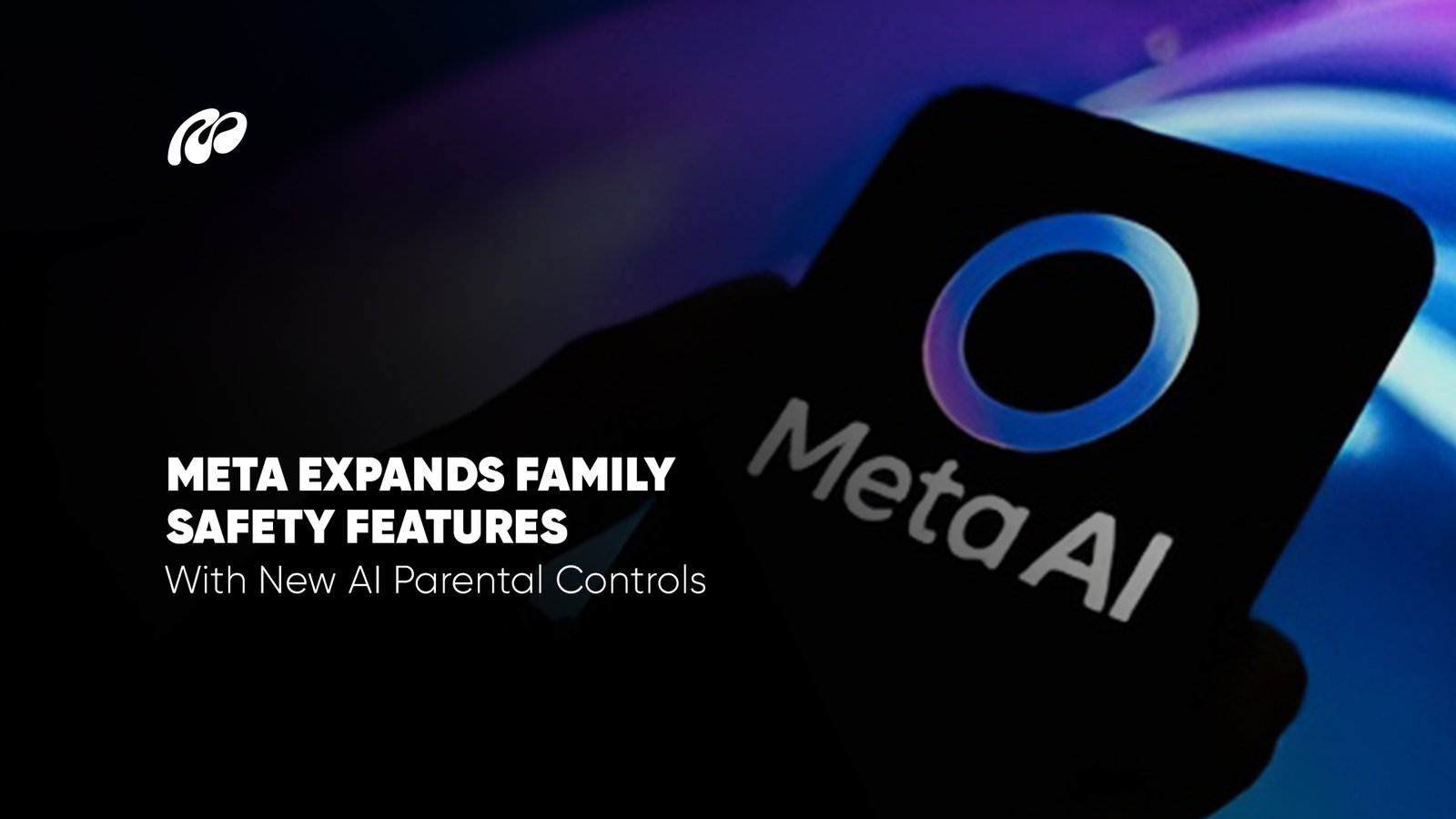Summary
- Meta AI introduced new parental controls that use advanced control AI to enhance teen safety and promote responsible digital interactions.
- The upgraded Meta AI chatbot monitors tone, context, and emotional cues, helping prevent exposure to harmful or inappropriate content.
- Guardians can customize settings, view summaries of AI interactions, and manage usage time, giving families more control over online engagement.
- The new system supports Meta’s long-term action Meta strategy, reinforcing its goal to balance innovation with protection and ethical responsibility.
- Meta’s decision to limit access to superintelligent AI models demonstrates its commitment to safer, more transparent meta AI development.
- Together, these advancements establish Meta as a leader in prioritizing family protection within the growing landscape of news in AI and responsible technology design.
Meta AI is taking a bold step toward building a safer digital environment for families by introducing advanced parental controls across its ecosystem. The new safety suite focuses on protecting teenagers through smarter content moderation, adaptive privacy settings, and emotion-aware interaction filters. These features give parents more confidence in how their children engage with AI-driven conversations while maintaining trust and independence for young users.
The latest version of the Meta AI chatbot integrates a dynamic control AI system that understands emotional tone and context, allowing it to filter sensitive topics and respond in an age-appropriate manner. This update arrives at a time when news in AI increasingly revolves around the balance between innovation and ethical responsibility. Meta’s approach signals a deliberate effort to ensure that artificial intelligence remains both empowering and protective, especially for younger audiences.
The company’s renewed focus on responsible development is also influenced by its evolving leadership in AI research. Earlier this year, Meta appointed Shengjia Zhao as Chief Scientist for AI Superintelligence, reinforcing its long-term vision of creating socially conscious and ethically guided AI models. His leadership has been instrumental in aligning Meta AI’s growth with human-centered values, ensuring that innovation supports safety, fairness, and emotional awareness. This change reflects Meta’s ongoing mission to embed empathy and accountability into its technology, paving the way for AI systems that understand not only information but intention.
The new parental dashboard allows guardians to customize permissions based on age, behavior, and engagement type. Parents can set conversation limits, enable monitoring summaries, and receive notifications if the Meta AI chatbot detects potentially harmful exchanges. Unlike traditional parental tools that restrict freedom, Meta’s system is designed around guidance and collaboration, encouraging families to engage in open dialogue about digital safety.
With these updates, Meta is redefining what family-focused innovation looks like in the AI era. The control AI framework gives both parents and teens the ability to shape interactions that are safer and more mindful. In an age where meta AI influences social learning, creativity, and communication, this initiative ensures that technology becomes a partner in well-being rather than a source of risk.
Meta’s progress marks a turning point in digital trust, proving that meaningful action Meta can combine cutting-edge technology with compassion, ensuring that every step forward in artificial intelligence also brings families closer to safety, balance, and understanding.
Strengthening Teen Protections
Meta’s newest safety initiative takes a thoughtful step toward protecting teenagers from the evolving risks of digital interaction. The company’s latest control AI features combine behavioral intelligence, emotional context detection, and real-time content filtering to create a safer space for young users. This update allows parents to monitor engagement levels, set content boundaries, and establish personalized time limits, ensuring that teen safety remains at the heart of Meta’s AI expansion.
The new Meta AI chatbot system operates with layered adaptability. It doesn’t just block keywords; it understands tone, conversation intent, and subtle shifts in user emotion. If a teen begins to interact with sensitive or harmful material, the AI automatically softens responses, changes the subject, or alerts the guardian dashboard. These features reflect Meta’s ongoing effort to teach its AI to respond with emotional intelligence, creating an environment that supports learning and wellness rather than restriction.
This safety approach also aligns with Meta’s decision to slow down the rollout of its most advanced generative models until stronger ethical guardrails are implemented. The company recently announced that it would limit access to superintelligent AI systems to ensure that future models are released responsibly and with human oversight. This decision reinforces Meta’s wider commitment to sustainable AI growth, showing that innovation must progress in sync with moral and social accountability.
By connecting family safety with responsible AI governance, Meta is setting a new standard for the digital age. These parental controls are not simply reactive features; they represent a forward-looking design philosophy where Meta AI adapts to human values. Each update builds a stronger bridge between youth empowerment and safety, proving that progress in artificial intelligence can, and should, serve humanity’s well-being first.
As part of its broader effort, Meta continues to refine its ecosystem through open communication and transparency. The Mattrics News Hub has been consistently tracking how these safety-first frameworks align with global AI ethics and family protection trends. By embedding such strategies directly into its operations, Meta aims to redefine how parental control, safety design, and innovation coexist.




